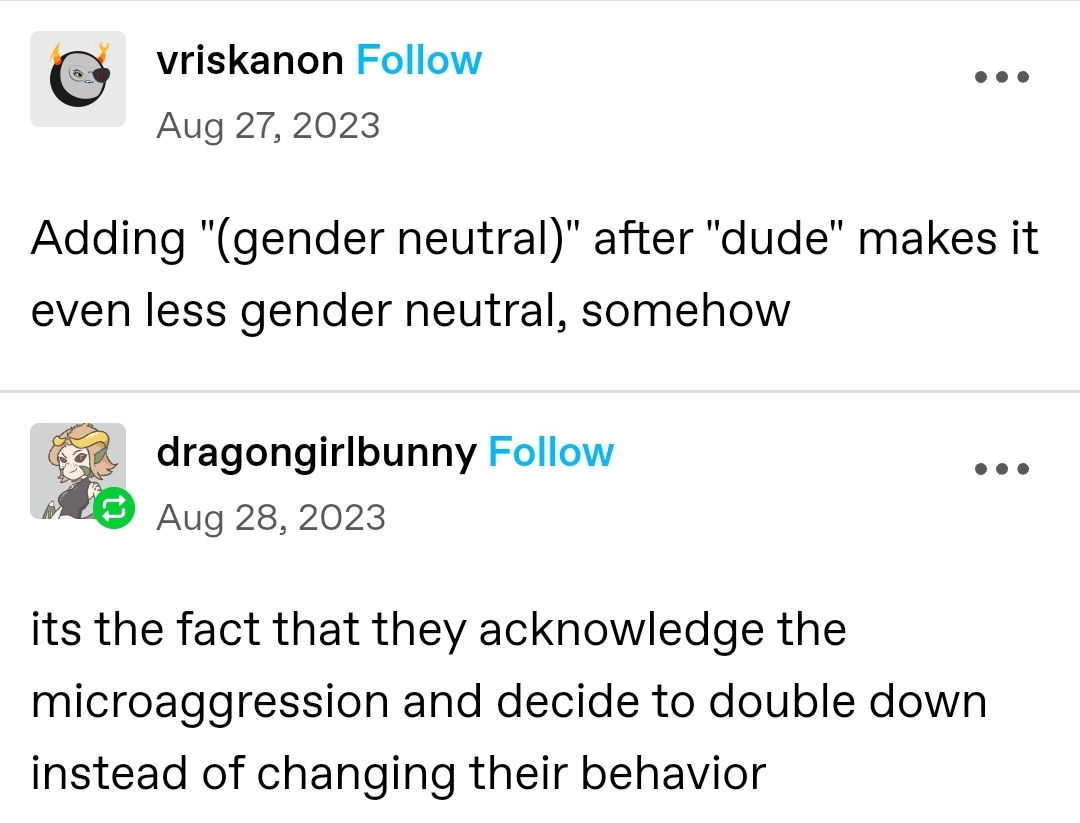traaaaaaaaaaaaaaaaaaaaaaaaaaaaaaaaaaaaaaaaaaaaaaaaaaaannnnnnnnnnnnnnnnnnnnnnnnnnnnnnnnnnnnnnnnnnnns
Welcome to /c/traaaaaaannnnnnnnnns, an anti-capitalist meme community for transgender and gender diverse people.
-
Please follow the Hexbear Code of Conduct
-
Selfies are not permitted for the personal safety of users.
-
No personal identifying information may be posted or commented.
-
Stay on topic (trans/gender stuff).
-
Bring a trans friend!
-
Any image post that gets 200 upvotes with "banner" or "rule 6" in the title becomes the new banner.
-
Posts about dysphoria/trauma/transphobia should be NSFW tagged for community health purposes.
-
When made outside of NSFW tagged posts, comments about dysphoria/traumatic/transphobic material should be spoiler tagged.
If you need your neopronouns added to the list, please contact the site admins.
Remember to report rulebreaking posts, don't assume someone else has already done it!
view the rest of the comments

Yes, absolutely. It's a case of linguistically defaulting to a masculine form. Not gramatically (grammatical gender is largely vestigial in contemporary English outside of personal pronouns), but semantically. This has been mentioned downthread, the original critique of these terms did not come from trans people, but ironically from radfems who opposed this default masculinity under a linguistic determinism angle, much moreso outside of the Anglosphere. For example, this is a major culture war issue in Germany, where reactionaries pretend that grammatically masculine terms, which are still commonly the default in German, are "gender neutral", whereas feminist and trans activists work on establishing actually gender neutral grammar as a new default.